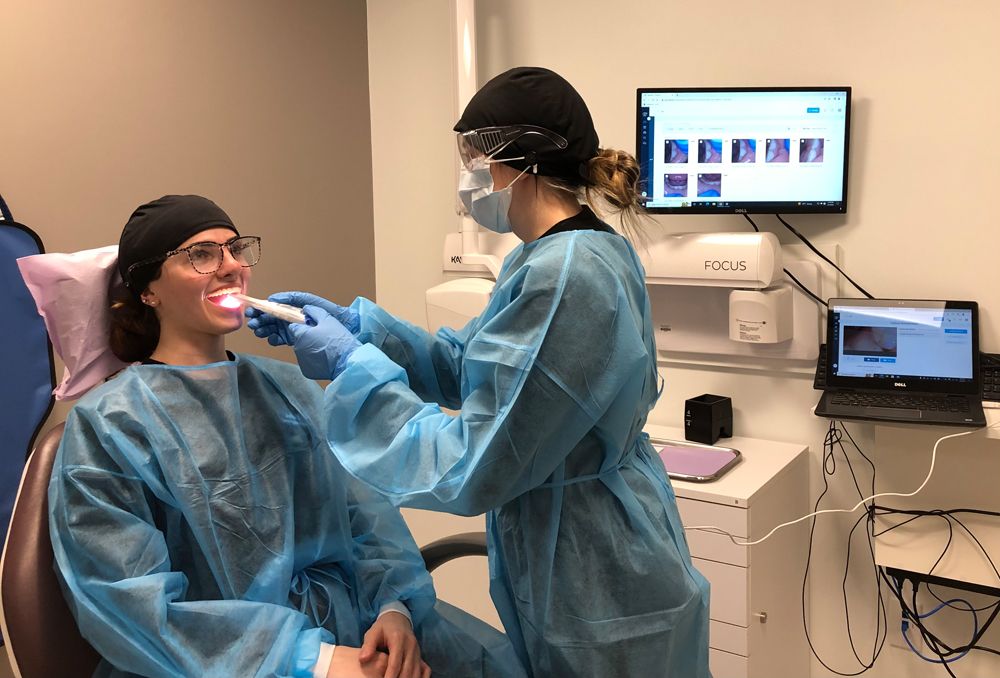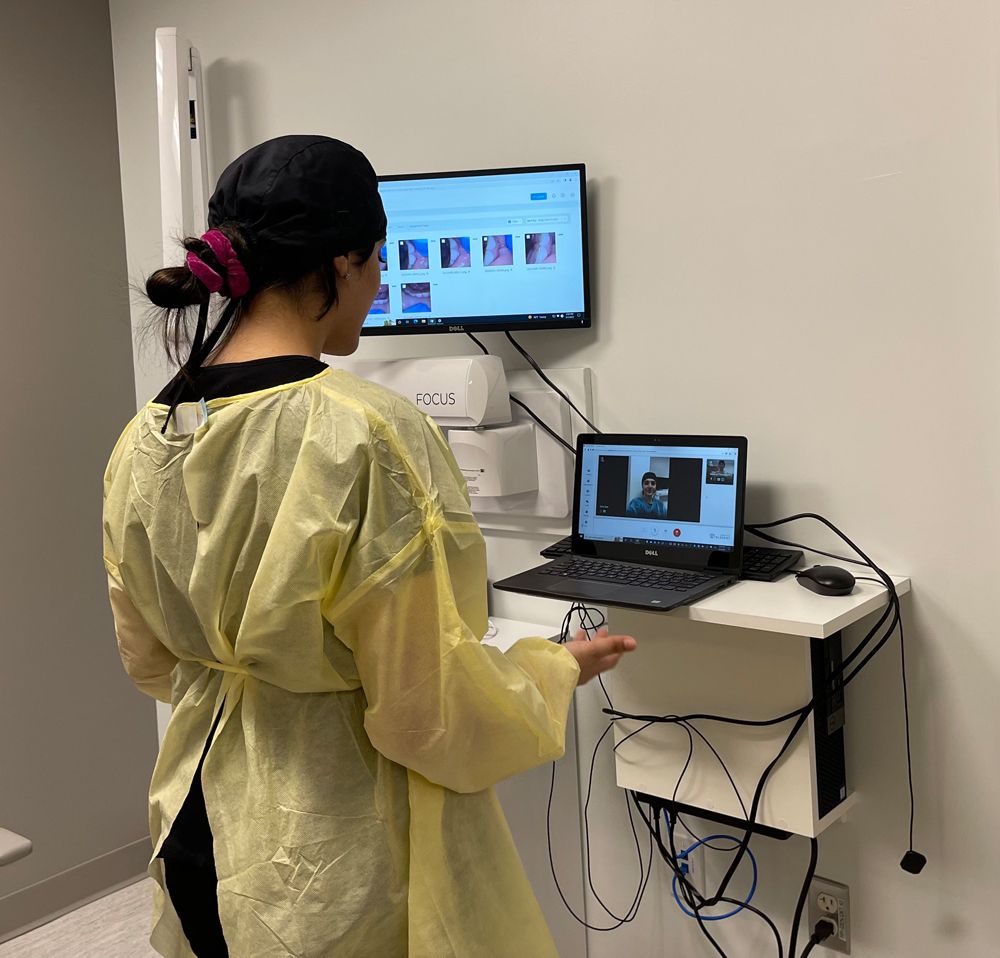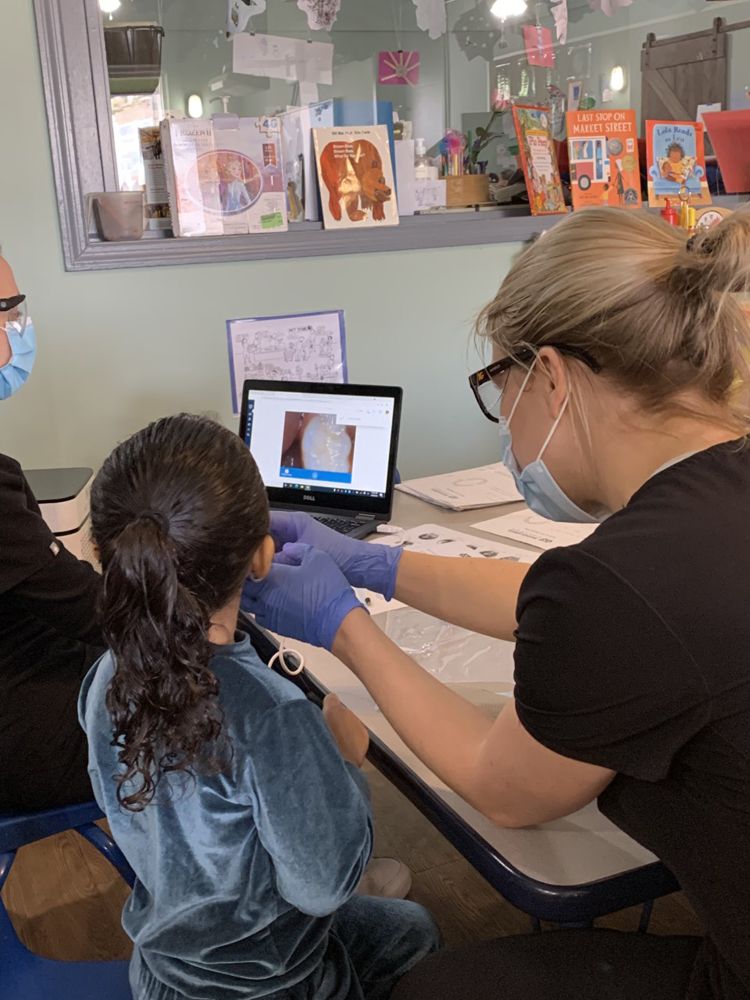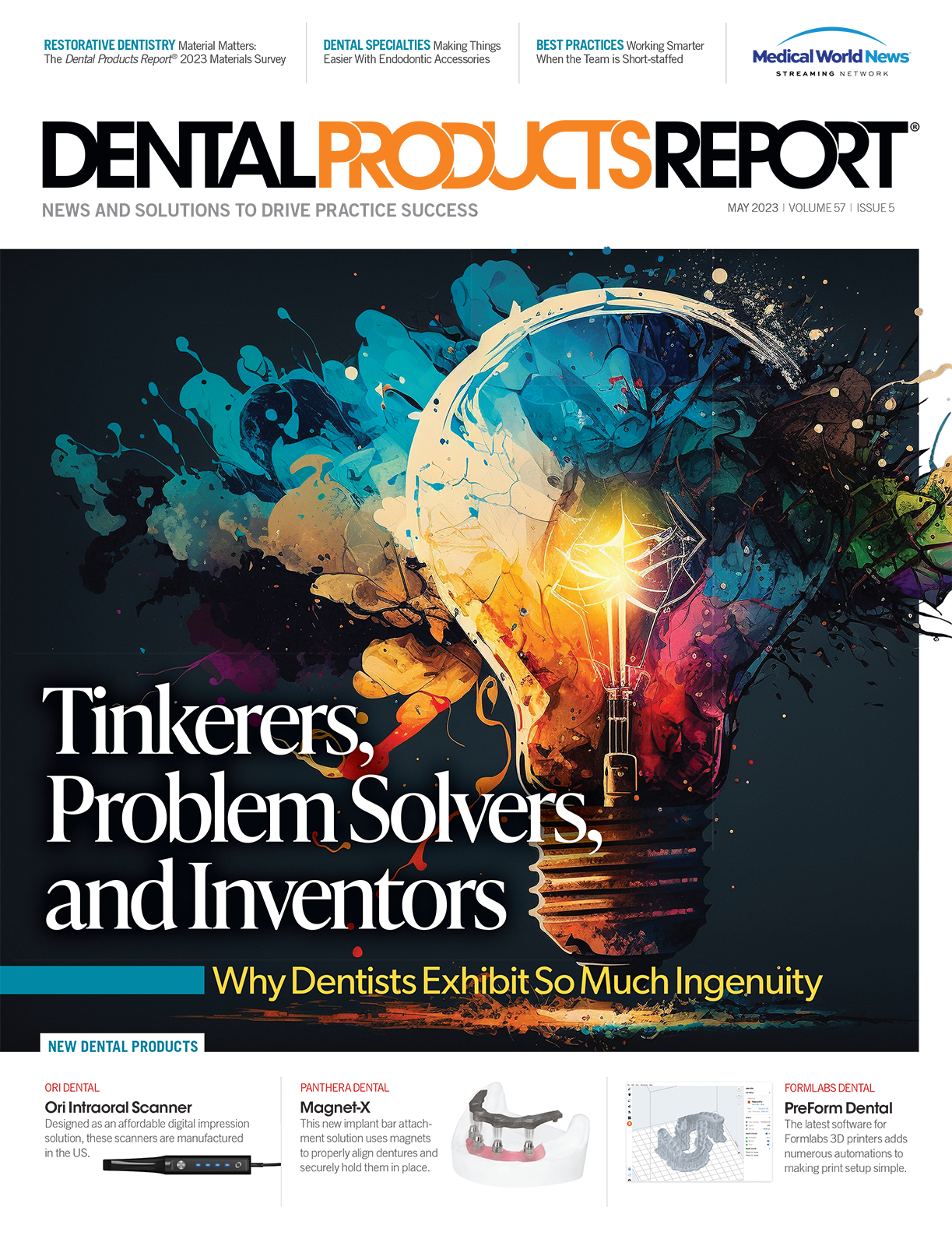Middlesex College Hygiene Department Embraces Teledentistry
Future hygienists learn the benefits of MouthWatch’s teledentistry software, Teledent, and other technologies to better prepare for their careers.

Middlesex College in Edison, New Jersey, is a 2-year community college that offers an Associate in Applied Science Degree in Dental Hygiene. The college’s dental hygiene program is based on a commitment to the highest standard of education that promotes the acquisition of knowledge, skills, and attitudes that ensure quality patient care, professional competence, and ethical behavior in the art and science of dental hygiene.
The curriculum is rigorous and includes general education, science courses, and dental hygiene courses. Students complete 2 years of academic study as well as clinical practice under the supervision of Middlesex College faculty in the college’s dental hygiene clinic and at external clinical practice sites.
High-tech Hygiene Curriculum
Middlesex College also has the distinction of introducing its dental hygiene program students to the latest dental technology. Deciding which new technologies are incorporated into the curriculum is determined by an ongoing process that includes interdepartmental meetings with members of the hygiene department, advisory committee, clinic dentists, and the curriculum department.
During these meetings, the participants discuss the most current trends in dentistry. We share a common goal that our hygiene students graduate knowing how to use the zwill be valuable members of the dental team.
In New Jersey, a new regulation Telehealth and Telemedicine, 54 N.J.R. 149(b), which was proposed on March 15, 2021, became effective on January 18, 2022. New Jersey Dental Hygiene Association CFO Becky Pugh met with us in fall 2021 and offered grant money to help purchase the MouthWatch teledentistry platform TeleDent.
At Middlesex College, all hygiene students are trained on using teledentistry in their senior year of classes.

We were already familiar with MouthWatch because we were already using the company’s intraoral cameras in classroom and community outreach settings. What’s more, MouthWatch is headquartered in the neighboring town of Metuchen. We were operating remotely at the time of the onboarding, so the training was conducted via Zoom. We conducted the hands-on workshop once we returned to in-person classes.
Integrating Teledentistry Into the Curriculum
Although the earliest examples of teledentistry were introduced more than 20 years ago, teaching it in dental hygiene schools is relatively new and forward-thinking. Currently, all Middlesex College hygiene students are trained on teledentistry in their senior year. Professor Nadine Thompson, EdM, RDH, BSDH (coauthor of this article) provides these students with 4 hours of didactic instruction, in which they learn how teledentistry is currently used in a variety of applications across the country.
The teledentistry training also includes an additional 4 hours of hands-on clinical instruction and practice that consists of how to use TeleDent specifically for adding patients, creating case records, capturing, and labeling images, uploading documents, and participating in virtual video consultations with patients and providers.
Our students have been very enthusiastic about teledentistry. They love the capabilities of the technology and its potential for improving access to care, which they experience firsthand during our community outreach programs.
Hands-on Public Health Teledentistry
One example of how Middlesex College hygiene students gained hands-on experience during a community outreach program was during an oral health screening event for children aged 11 months to 5 years old conducted at Noah’s Ark Preschool in Highland Park, New Jersey.
During this event, our hygiene students conducted oral screenings and took intraoral photos of 66 children. The screening notes and photos were then sent to a dentist working remotely for analysis. This process was much quicker and enabled more children to be screened than if the dentist was on the premises.
Hygiene students gain plenty of experience with teledentistry both in the classroom and at community outreach programs where they work with children and conduct oral health screenings. (Photos courtesy of Middlesex College.)

The dentist then developed a detailed referral report including intraoral photos of decayed teeth that were shared with the child’s parent or guardian so they in turn could share with their dentist. If the child did not have a dentist, which is often the case, one would be recommended to ensure that the child would receive treatment.
The children by and far were willing teledentistry patients. They were fascinated with seeing pictures of their teeth on a computer screen and couldn’t wait for their turn.
Teledentistry and the Next Generation of Hygienists
Being trained in teledentistry enables our graduating hygienists to help implement programs that reach underserved populations and be more valuable team members in a private practice or dental service organization setting. If our graduates are hired by a practice that is already using teledentistry, then they will be an experienced asset. If they join a practice that hasn’t adopted the technology, they can be an advocate for all the possibilities it presents. Either way, teledentistry will enable our hygiene program alumni to make a positive impact on the future of oral health.
About the authors
Michelle Roman, EdD, RDH, has worked in higher education for over 10 years, and in clinical practice for 20 years, and is a United States Air Force veteran. She took over as the program chairperson for the Middlesex College Dental Hygiene program in 2017. She is passionate about her students’ educational experience and works collaboratively with faculty and staff to make sure the program is focusing on student success and preparing them to go into practice with knowledge of the most up-to-date technologies.
Nadine Thompson, EdM, RDH, BSDH, is an instructor at Middlesex College, Dental Hygiene Program in Edison, New Jersey. She has over 14 years of clinical experience and over 8 years in higher education.
